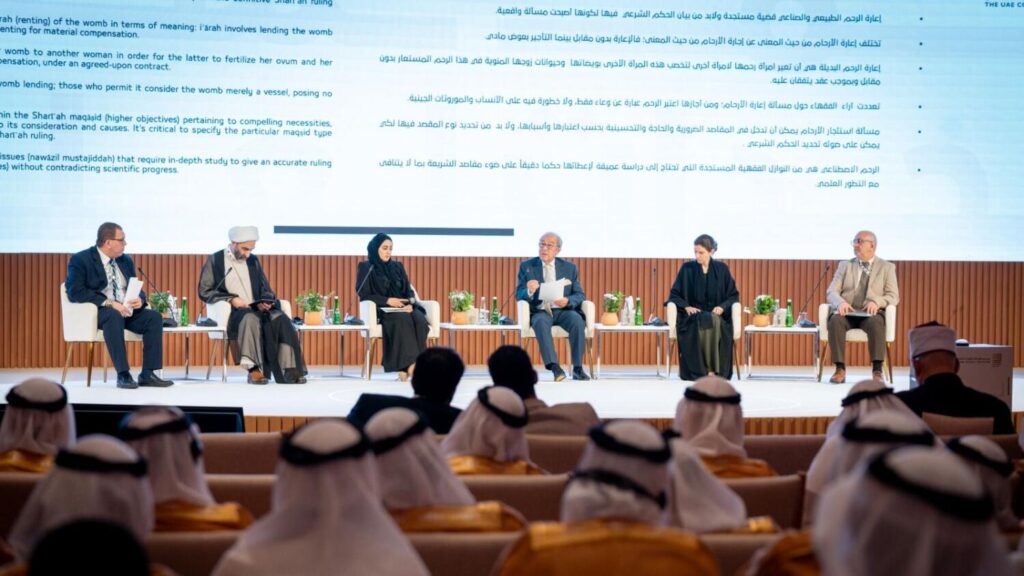Following recent changes in UAE surrogacy laws, a local doctor seeks an Islamic perspective on the practice
In the wake of recent legislative changes in the UAE permitting surrogacy, an Emirati doctor is urging Islamic scholars to issue a fatwa, or religious edict, to assess the practice from an Islamic standpoint. Surrogacy involves a woman carrying and giving birth to a child on behalf of a couple or individual.
Addressing the second international conference of the UAE Council for Fatwa, Dr. Maha Taysir Barakat delivered a comprehensive presentation on the scientific aspects of surrogacy to an audience of over 160 scholars, scientists, and intellectuals from around the world.
Dr. Barakat emphasized the importance of understanding that the surrogate mother provides a nurturing and life-sustaining environment for the baby. She likened this to a woman breastfeeding another woman’s child when the latter cannot produce milk. Dr. Barakat explained the fertilization of the egg and sperm in a controlled environment before being implanted in the womb of the surrogate mother, highlighting that the surrogate mother cannot alter the baby’s genetic makeup.
READ:Dubai Unveils Ambitious 2024-2026 Budget Focusing on Economic Growth and Sustainability
In October, Federal Decree Law No. 17 of 2023 amended the existing Federal Decree Law No. 7 of 2019, introducing significant changes to reproductive techniques in the UAE. These changes include extending Medically Assisted Reproduction Techniques (IVF) to non-Muslim parties without a marriage certificate, permitting surrogacy, and granting unmarried couples access to fertilization and implantation procedures.
Manasi Dicholkar, a legal associate from Alketbi advocates and legal consultants, stated, “A significant shift is seen in the removal of Article 9(3), which previously prohibited the performance of surrogacy. The amendment now permits surrogacy in the UAE, signaling a progressive move towards embracing diverse reproductive options.”

Speaking at the event, Dr. Barakat stressed the need for scholars to understand the scientific process behind surrogacy. She explained that the Islamic world must come to terms with these advancements. Dr. Barakat also pointed out that the practice of renting natural and artificial wombs is a newly emerging issue, requiring a comprehensive examination to establish a definitive Shariah ruling that aligns with both the objectives of Shariah and scientific progress.
READ:UAE Braces for Hazardous Weather as NCM Issues Alerts for Continuing Rains
She noted that surrogate mothers cannot change a child’s lineage and should be regarded in a manner similar to a wet-nurse who breastfeeds a baby. Under Islamic law, a wet-nurse or a woman who breastfeeds a non-related child is considered a second mother, and marital relations are prohibited between the child and her. Moreover, any children she has breastfed are prohibited from marrying each other in Islamic tradition.




